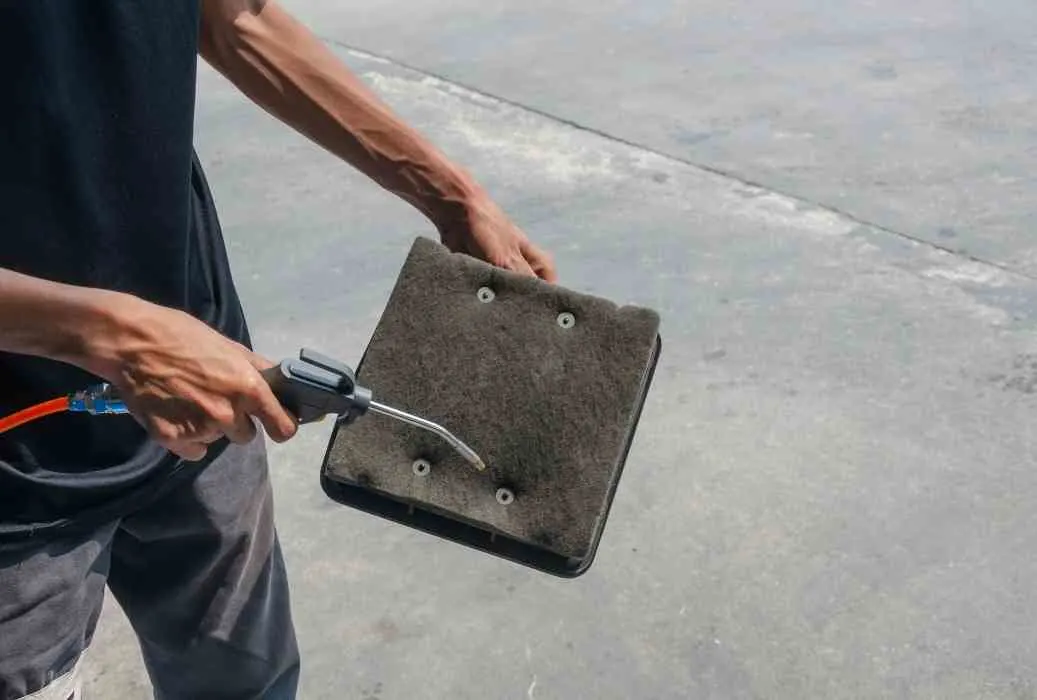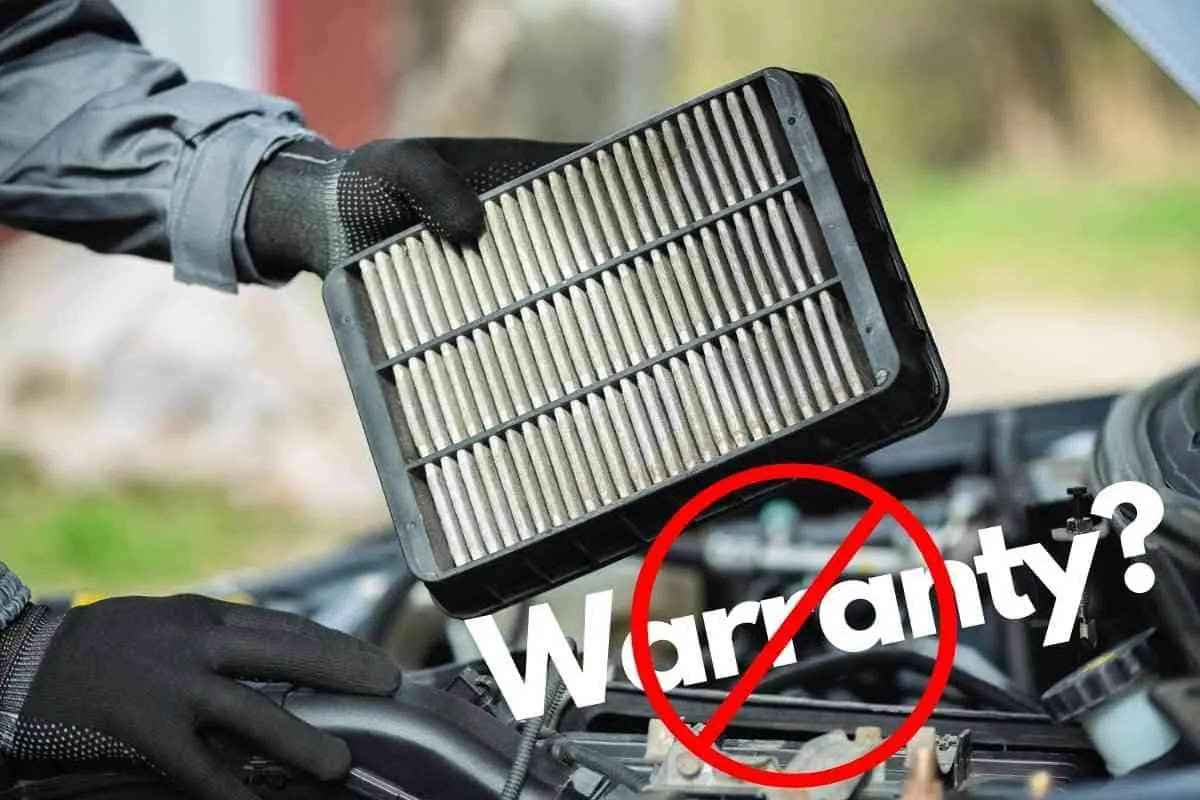K&N air filters differ from traditional air filters in a few ways. They’re built to last the lifespan of your car.
Simply clean them off every once in a while, and they’ll keep working for a long time.
But wait, are they considered an “aftermarket” addition that could potentially void your warranty? It may sound like an extreme worry, but you know how manufacturers can ding you for even the tiniest of things.
Will replacing your current air filter with a K&N air filter void your vehicle’s warranty?
Replacing your air filter with a new K&N one will not void your warranty. Upgrading your air filter is an extremely simple process and even if it is considered an “aftermarket accessory,” the Consumer Products Warranty Act ensures that you can keep your warranty and still use aftermarket parts.
This means that you should feel absolutely free to invest in this simple upgrade to your vehicle so you can immediately start seeing improved performance.
Read on for more information about the Consumer Products Warranty Act, K&N air filters, and why they are a worthwhile aftermarket upgrade.
Will Using an Aftermarket Filter Void My Warranty?
The Consumer Products Warranty Act protects the right to use aftermarket parts.
Manufacturers can’t do anything about your warranty if you’re using an aftermarket part. That includes the use of K&N air filters.
So, don’t worry about using one of them. Your warranty will remain active!
How Efficient Are K&N Air Filters?
K&N air filters are more efficient than a lot of filters. They’re able to filter up to 99% of particles from the air.
That’s more than enough to provide your engine with clean air.
Providing reliably clean air is good for your engine’s lifespan and performance.
A lot of drivers report noticing an increase in their fuel economy. You might even notice a slight boost to your car’s horsepower as well.
How Will K&N Air Filters Impact My Car’s Performance?
K&N doesn’t make any claims regarding the impact of its filters on a vehicle’s performance. However, there’s plenty of anecdotal evidence supporting their benefits.
Many drivers notice they’re not going to the gas station as often. And, they’ll see an improvement in their vehicle’s responsiveness, too.
That makes a lot of sense when you consider how an engine works. Clean air helps to ensure fuels combust fully.
Dirty air can leave gunk behind in the engine as well, which makes it difficult for fuel to get where it needs to be.
As such, gunky engines aren’t going to work as efficiently as clean ones. So, using a high-efficiency filter should improve the performance of your car.
Fully combusting your fuel provides more explosive force than partially combusting it.
Are K&N Air Filters Better for the Environment?
Most of the time, you’ve got to throw away your air filters after driving for around 15,000 miles. If you drive 150,000 miles, that would mean you’ve got to throw away 10 of them.
That’s not the case when you’re using a filter made by K&N.
Their filters are meant to last for up to 175,000 miles. That’s long enough to outlast most people’s vehicles.
Over the life of the car, you’d only use one of them. Using one filter definitely beats using 10 of them in terms of environmental impact.
A K&N filter doesn’t use much more material than a traditional filter, too. So, they’ve got a much better profile when it comes to environmental friendliness.
By using one of them, you’ll limit your impact on the environment.
What Makes K&N Air Filters Different?
K&N filters differ in a few ways from other ones. Airflow and filter efficiency are the two most important factors of any filter.
K&N filters perform well in both categories. The best filters perform well in both of these categories.
They’re able to filter out particles down to the micron size. That’s enough to remove nearly 99% of particles from the air while you’re driving.
Plus, they’ve got a much better flow rate as well. They’re able to deliver more air to your engine than a traditional filter.
Let’s put this in a simpler language. Your engine gets more air when you’re using one of their filters.
And, the air it gets is going to be a lot cleaner on top of that. Overall, that’s great for your engine’s performance and reliability.
How Often Should I Clean My K&N Air Filter?

One of the biggest reasons people use K&N filters would be that they can clean them.
Instead of throwing them away, you’ve just got to make sure they’re clean. Cleaning them is relatively easy, too.
We’d recommend using a can of compressed air to get in all the crevices.
However, you could clean them pretty well just by knocking them on the ground.
To get the best results, take a little time while you’re working on them. Pull apart each of the folds by hand. Then, spray some air into the cracks.
Do that for both sides of the filter.
By doing that, they’ll get a lot cleaner than they would if you rushed.
Make sure you’re cleaning them frequently. Driving somewhere with bad air will get them dirtier than driving somewhere else.
So, pay attention to your driving conditions. If you’re going through the desert, you might want to clean them daily.
In normal conditions, you’ll probably only need to clean them once every 10,000 miles. Cleaning them more often won’t cause any damage, though.
So, don’t hold back. A clean filter provides the best benefits.
What’s the Difference Between Dry Flow and High Flow Filters?
You’ll notice that K&N produces two types of filters. One of them is the dry flow filter. The other would be the high flow filter.
Both tend to perform better than traditional filters. But, what’s the difference between the two?
Dry flow filters don’t need any oil to function well. You’ve got to lubricate the high-flow filters.
Using a dry flow filter provides similar benefits, thankfully.
So, for the least maintenance, you’d want to use one of them. High flow filters provide a little more airflow, but the difference is negligible.
